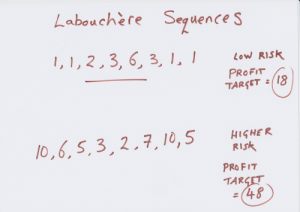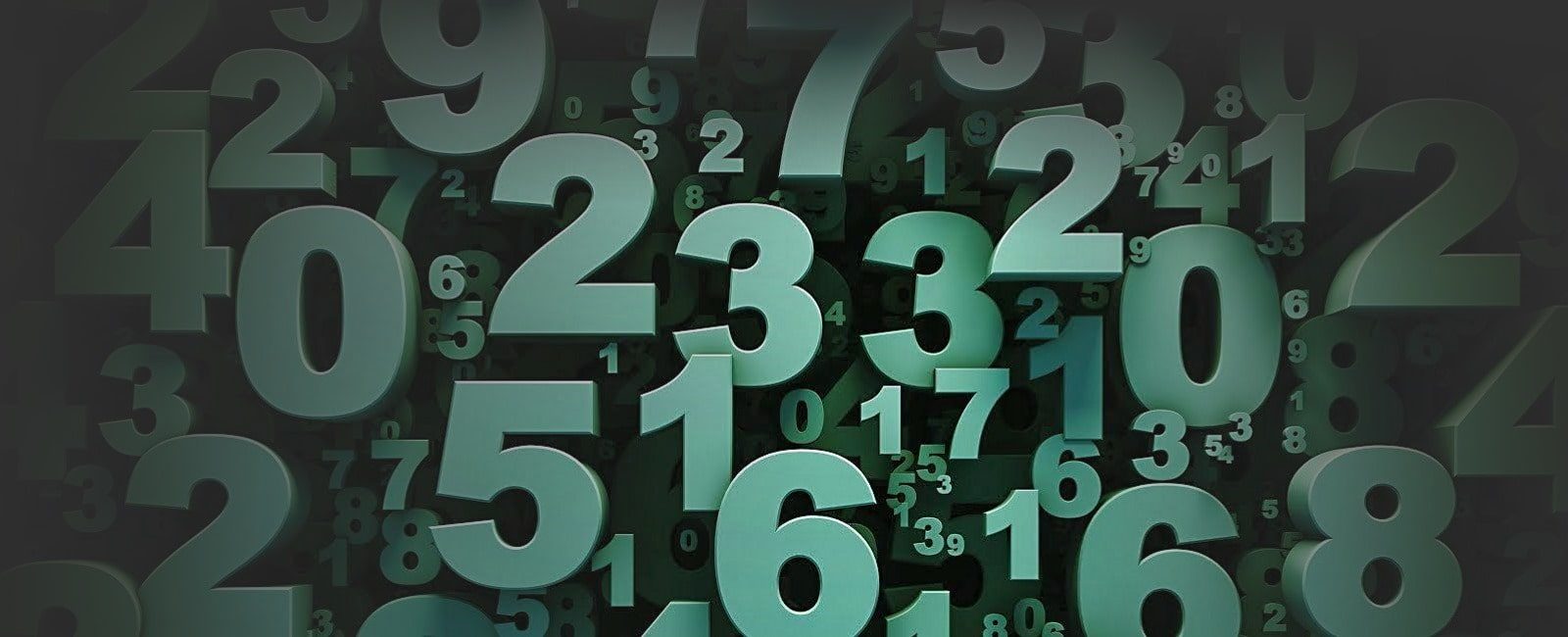Reverse Labouchere
Increase your bet level after a win in the Reverse Labouchere system.
Positive Progression.
Many roulette systems and strategies have an opposite, or “reverse” variant. The Martingale system does, and so does the Fibonacci System.
The Reverse Labouchere is perhaps the most famous (it’s the mirror image of the Labouchère roulette system of course). In this section we’ll explain what it is, and how to play it.
The Reverse Labouchere
Whereas the Labouchere is a negative progression system like the Martingale and Fibonacci System, where you bet a higher amount after a loss to try and get back into profit, the Reverse Labouchere is a Positive Progression System like the Reverse D’Alembert system where you increase your bet after a win in an attempt to accelerate profits on a winning streak (another example is the Reverse Fibonacci).
In essence, it is very similar to the Labouchere, you just increase your bets after a win rather than after a loss.
Norman Leigh
The Reverse Labouchere system was made famous by an English guy called Norman Leigh in the sixties who subsequently wrote a book about his exploits (13 Against The Bank). He travelled down to the French Riviera with a team of 12 guys with the aim of taking the casinos to the cleaners playing roulette.

The Leigh team were eventually banned by every casino in France.
Norman Leigh’s thinking was as follows: He reckoned the easiest system with which to lose money in roulette was Labouchere.
By pure logic, he deduced that if he played its reverse, he’d have the best system with which to win money.
The Labouchere Reviewed
Let’s just run through a revision of the Labouchere, a system thought up by a keen roulette player called Henry Labouchere (1831 – 1912). It was designed to be used at the roulette table, specifically the even money outside bets such as red or black, or odd or even. It can also be used in other casino games like blackjack and baccarat, and also in sports betting.
First, write down a sequence of numbers, for example
1, 2, 3, 5.
Then, bet an amount equal to the sum of the 1st and last numbers in the series (6 in the series above). Cross off the numbers at either end if you win, add the last bet if you lose, so if you win, you new sequence is:
2, 3.
Now bet the sum again- in this case 5.
If you get to the point where all numbers are crossed off, you have completed the progression. If not, continue until you do, or until you hit your stop loss limit.
Now the Reverse Labouchere
Now, let’s look at the opposite to this: the Reverse Labouchere or Reverse Labby, where you add numbers to your sequence after you win, not after you lose. You try and accelerate winning streaks and conserve profits.
When Norman Leigh and his team did this, they covered all the even payout outside bets (the so called “50-50″ bets: red-black, odd-even, high-low) at 2 tables. Leigh took a 10% cut, and the rest of the profits were split evenly among the team.
Is this myth or reality? Well, one thing is for certain. Norman Leigh has made a lot of money from his book- that is probably where he made most of it, in fact. This system won’t change the house edge, but it is never a bad thing to work to a strict system where you have a stop loss and take profit target.
Quick Guide to the Reverse Labby (More Detail Below)
- Wirite down a sequence of numbers
- Bet the sum of the first and last numbers
- After a win, add your last bet to the end.
- After a loss, take out the 1st and last numbers
- Keep playing until you have got through all of the numbers in your sequence or hit your stop loss limit or profit target. You may need to have “mini” profit targets for each run.
This system is best played on the lower risk bets outside bets that pay out 1:1: follow Norman Leigh’s lead (red/black, even/odd, hi/low etc).
Pros and Cons
- Makes you set a strict stop loss and profit target like the 1326 System.
- You decide the agressiveness of the progression and the level of risk.
- Bets increase after a win, so you are betting previous winnings rather than chasing losses
- Because bets increase after a win, there is a danger of you wiping out your previous winnings if you do not time the end of each mini session. Are you planning to win 3 times in a row? 4? 5? Decide first, and pull out before you reach it
- The Reverse Labouchere has no impact on the overall house edge: 2.6% in European and 5.2% in American Roulette
Writing Down Your Labouchere Sequence

Grab a pen and paper and write down a list of numbers. The numbers are up to you. The larger the numbers, the more you are risking, of course. Experiment with different sequences and then fix your betting profile.
Also write down your stop loss limit and your profit target. You can set your profit target as the sum of all the numbers in your sequence, but it is good practice to try and make lots of “mini targets” rather than play for an overall one for your whole session. That way, you can try and build up to your overall target.
A low risk Labouchere sequence will have lots of 1s in there, particularly at each end. Bigger numbers, mean a bigger risk of course. You can repeat numbers
Make sure you stick within the betting limits of the table. There are some high limit roulette tables about like Premier Roulette, for example. Or you might want to keep your bets lower on a standard European Roulette game.
Where to Play The Reverse Labouchere
We would recommend playing the Reverse Labouchere on a European Roulette Variant such as the one at Virgin Casino.
Call us superstitous, but we’d play this on a French Roulette game. Norman Leigh did!

